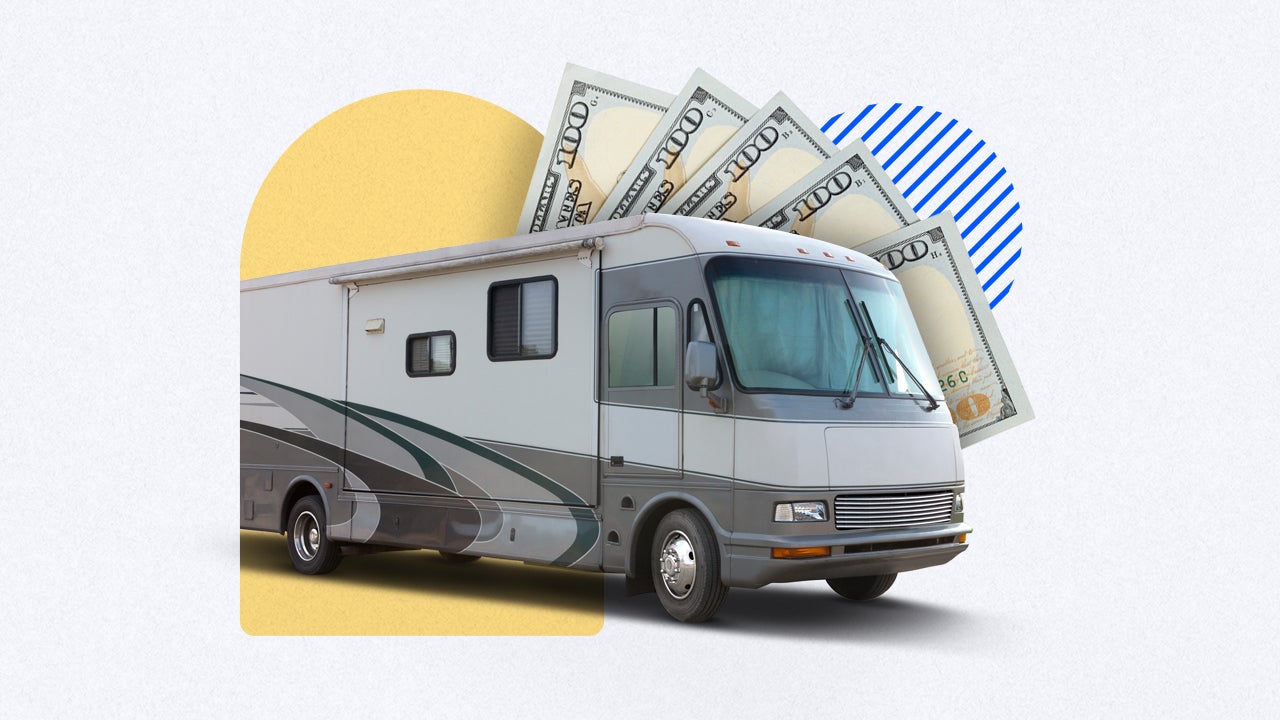How to choose the best boat loan lender




Key takeaways
- The best boat loan lender depends on your unique financial situation and personal preferences.
- Consider interest rates, repayment terms, eligibility requirements and vessel restrictions when evaluating lenders.
- Get prequalified with at least three lenders and compare quotes to find the most affordable loan.
- A personal loan could be a viable alternative if you can’t secure a boat loan with attractive terms.
Finding the best boat loan lender requires more than just searching for the lowest rates and fees. The type and age of the boat (as well as how you plan to use it) may lead you to one lender over another.
Knowing how different types of boat loans work can help you decide which offers the best repayment terms for your budget. Learning lenders’ requirements can also help you weed out those that don’t suit your credit or don’t finance the type of vessel you’ve set your sights on.
6 factors to consider when choosing the best boat loan lender
1. Secured or unsecured
A secured loan uses your boat as collateral in the same way that a car loan is secured by the vehicle. Rates are generally lower since the lender knows they can repossess the boat if you don’t repay the loan. That said, a down payment may be required, and the boat must meet specific guidelines to qualify for funding.
Unsecured loans are a good option if you’re buying an older used boat or don’t qualify for dealer financing for the boat you want. Personal loan companies offer up to $100,000 with a term of up to seven years, and you typically don’t have to offer a down payment. One caveat: If you have bad credit, your APR could be as high as 36 percent.
2. Usage requirements
Some secured boat lenders won’t approve certain boat models. Others may not allow you to finance boating-related costs, like marina fees, insurance or maintenance. Some also place restrictions on how you use the boat after it’s purchased — you might not be approved if you plan to live aboard the boat or rent it out.
You can avoid these types of restrictions by opting for an unsecured personal loan. The boat’s specifications aren’t considered, and you can borrow extra to cover other boat-related costs secured lenders might not allow. Keep in mind that this flexibility comes at the expense of higher costs.
3. Used boat restrictions
Older models often need more maintenance and upkeep, making them harder to resell. For these reasons, some lenders hesitate to finance a used boat with a secured loan. And if you are approved for financing, a larger down payment or higher interest rate is generally required to offset this risk.
Boat financing lenders may also base their offer on a full inspection to ensure the vessel is in good condition. If you have your eye on a boat that won’t qualify for secured financing, consider a personal loan to finance it instead.
4. Rates and terms
Unsecured personal loan APRs range from 7 to 36 percent with terms of up to seven years. Secured boat loan APRs come with lower APRs, often starting below 7 percent for borrowers with excellent credit, and repayment terms as long as 20 years. It’s also worth noting that new boat rates are usually lower than APRs for older boats.
Some unsecured lenders cater to excellent credit borrowers with rates that rival secured loans. You’ll also avoid the extra steps in the approval process for your boat and can borrow more than the boat price for extras you might need to get the vessel water-ready.
5. Fees
Some lenders may charge application or origination fees on top of interest, which could inflate the loan amount if you buy an expensive boat. If you borrow a personal loan, these fees are deducted from the loan funds before you receive them.
Make sure you borrow enough to cover them, or you’ll pay the difference out of pocket when you buy your boat. You can shop for lenders offering low- or no-fee loans, but you may have a more challenging time avoiding fees if you have fair or bad credit.
6. Reputation
Always check out the consumer and industry ratings of any lender you’re considering. You can also review borrower comments and post questions on boating forums before moving forward with applying.
Watch for patterns in the reviews. For example, if you notice that many people have issues with customer service or difficulty getting their loans funded, you may want to keep shopping.
Where to find a boat loan
There are no shortage of lenders that finance boats — but the right one for you depends on the type of boat you need to finance, your credit profile and how quickly you need the funds.
- Banks: If you have an account with your local bank, inquire about boat financing options. You could qualify for special financing incentives if boat loans are available. Keep in mind that most banks require good or excellent credit to qualify for funding.
- Credit unions: Some credit unions also offer boat loans with competitive rates and lower fees to their members. Like banks, you’ll need solid credit to qualify for funding, but the eligibility guidelines may be less stringent.
- Online lenders: If you don’t mind a fully digital experience, consider an online lender to secure funding for your boat purchase. They generally offer unsecured personal loans with rapid funding times through a streamlined application process.
- Marine lenders: These lenders specialize in recreational financing, and often feature flexible programs to help you secure a boat loan. And since they focus exclusively on boat financing, marine lenders can expertly answer your boat-specific questions. Some merchants partner with these lenders to facilitate the funding process.

The best boat loans in 2025
Before you hit the water, compare Bankrate's picks for the best boat loan lenders.
Learn moreTips for finding the best boat loan lender
- Decide between secured or unsecured options. The APRs, down payment, costs, and terms of each type of lender are very different. In general, secured loans are best for new expensive boats that require high loan amounts or long repayment terms. Unsecured loans are your best bet for used boats, especially if you need fast cash for a private party purchase.
- Shop around. Finding the best place to get a boat loan often requires comparing offers from at least three boat lenders. Make sure you compare apples-to-apples loan types. Once you find a few suitable lenders, see if you prequalify before applying. Prequalification allows you to see your approval odds and predicted rates before applying without impacting your credit score.
- Spruce up your credit score. The lowest boat loan rates go to borrowers with the highest credit scores. If your boat-buying plans are a few months away, consider paying down your credit card balances to boost your credit utilization ratio.
- Check your debt-to-income ratio. Lenders measure your debt-to-income (DTI) ratio to determine how much of your monthly paycheck is used to pay debt like credit cards, car loans or mortgages. A high DTI ratio may result in a higher rate, lower loan amount or both.
- Learn the lender requirements before applying. Your financial profile should meet the lenders’ boat qualification requirements. The requirements for a luxury boat loan may be stricter than for someone financing a used watercraft. Before applying, check the lender’s website for details about the minimum and maximum loan amounts, credit score minimums, repayment terms and any boat specifications (for secured loans).
- Check the lender’s funding time. You should also know how quickly the lender funds loans, especially if you’re competing to buy a used boat and need the funds quickly.
Bottom line
Financing a boat can be a great way to buy your vessel and create those summer lake or seafaring memories. However, the monthly payment may be significantly higher or lower depending on whether you choose a secured or unsecured option.
To minimize the amount of interest you pay, consider making a large down payment or sprucing up your credit by paying off your credit card balance months before you apply. Those simple steps could help you enjoy your water time without the stress of an unaffordable loan.
Why we ask for feedback Your feedback helps us improve our content and services. It takes less than a minute to complete.
Your responses are anonymous and will only be used for improving our website.
You may also like

How to prequalify for a personal loan, and why it matters

How to find the best FHA mortgage lender

How to choose the best RV loan lender for you

